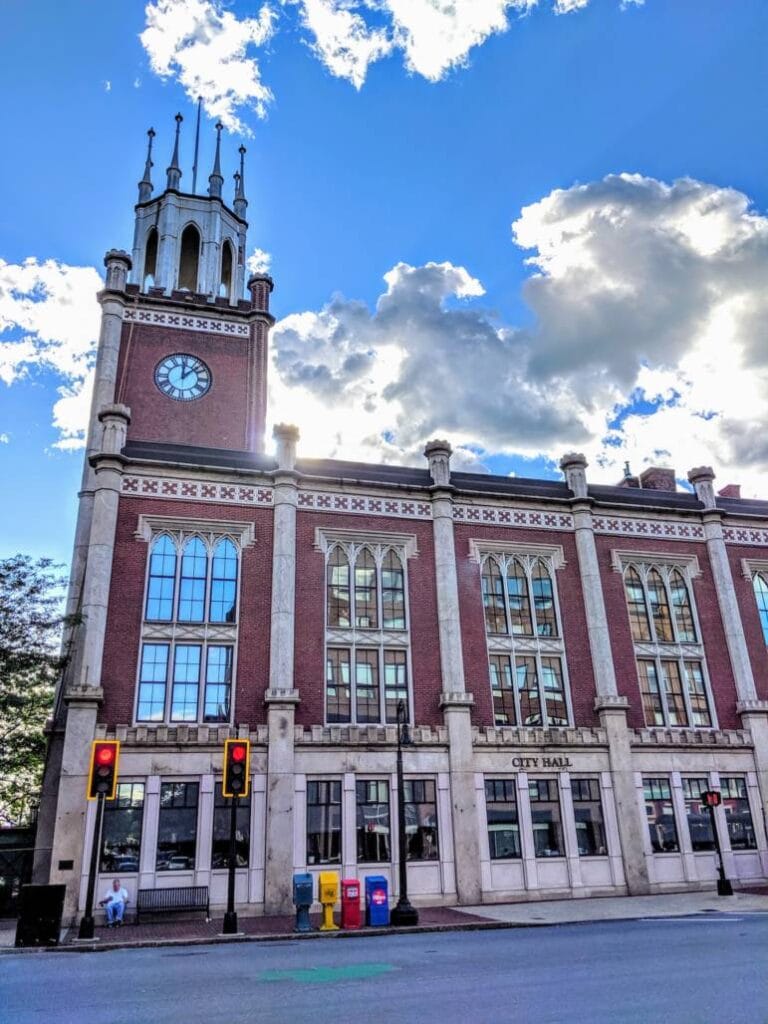Committee to hear $200K proposal from Hope Recovery for mobile outreach program
There is one item on the Feb. 18 Special Committee on Alcohol, Other Drugs & Youth Services agenda: a proposal from Hope Recovery to expand their Hope Connections program which provides outreach to those who are homeless and dealing with addiction.

MANCHESTER, NH – There is one item on the Feb. 18 Special Committee on Alcohol, Other Drugs & Youth Services agenda: a proposal from Hope Recovery to expand their Hope Connections program which provides outreach to those who are homeless and dealing with addiction.
The funding request calls for $201,000 for program operations – $126,000 of which would provide a peer support team and administrative costs and $75,000 for a case manager position to be filled.
The Hope Connections program “can help to alleviate strain on first responders, improve access to SUD treatment and recovery support, and enhance community health and safety in Manchester,” according to the proposal.
Not only does this type of outreach align with Hope Recovery’s mission, which promotes holistic recovery from addiction – mind, body and spirit – but it is a crucial first-step that can change the course of a person’s life, says Hope Recovery’s Executive Director Randy Stevens, who knows this from personal experience.

“Six and a half years ago, I was in the same position as many individuals currently experiencing homelessness and addiction at the Beech Street shelter and throughout our city. I understand firsthand how it feels to be stuck. Hope Connections is designed to offer that crucial ‘hand up’ – connecting with people where they are, and then guiding them toward where they want to be,” Stevens said. “Those who need support will find a compassionate, motivated, and knowledgeable team ready to help them find more permanent and stable situations.”
Initiated in October of 2024, the mobile outreach program has been working in partnership with Manchester Fire Department and the 39 Beech Street shelter, and cites the following benchmarks:
- 33 outreach events
- Engaged 1,104 individuals
- Completed 37 distribution events
- Distributed 1,101 units of supplies
- 3 connections have become members and sought treatment
While partnering with Squad One:
- 31 Engagements
- Distributed 27 units of supplies
- 3 connections have become members and sought treatment
Through funding, expansion of the program would:
- Increase service capacity and outreach frequency.
- Provide comprehensive support (case management, housing navigation, job training).
- Deepen existing collaborations and forge new alliances.
Funding for the program would be requested from the Opioid Abatement Fund.
Committee member Alderman Bill Barry on Thursday said he believes the Hope Connections program is “a good fit” at a time when it has been made clear that the city does not want to stay “in the shelter business.”
Current funding for the Beech Street shelter was set to run out in March, but Barry said he anticipates Mayor Jay Ruais to propose extending that to September using some combination of state money and the city’s affordable housing trust fund, which got a boost last year from the sale of surplus properties.
He supports the Hope Connections program, especially the hiring of a case manager. Currently Barry feels there isn’t enough focus on moving people from the shelter and into more permanent housing situations.
“I had proposed that in the past, a case manager to oversee everyone at that shelter and figure out where they should be. You need an aggressive case manager to be working with people every day,” Barry said.
“Especially we should be looking for housing options outside of Manchester,” Barry said, although he acknowledged that such transitional and supportive housing options are scarce all across the state.
The mayor has been vocal about working for months on finding an outside organization to take over operation of the Beech Street shelter, and Barry said that is yet to be settled. The proposal from Hope Recovery does not include shelter management, but rather it would allow them to work on widening their scope of services within the city.
The Special Committee on Alcohol, Other Drugs & Youth Services will convene on Feb. 18 at 6:30 p.m. at City Hall.

